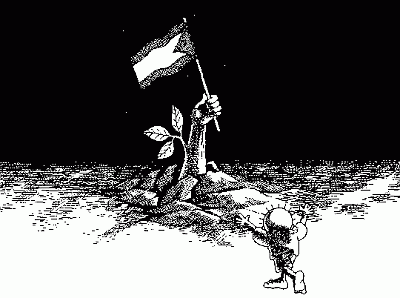(MFL: might be interesting to ponder about these reform points)
Reform plans written by Fady Abboud , taken from here
President Elias Hrawi's term in office lasted nine years. Likewise, President Emile Lahoud's rule stretched over nine years. Electing a replacement for the latter president has so far required nine attempts (and one more since this article was written). In Britain, however, 999 is the number for Emergency services. It seems that Lebanon now needs to dial 999. An emergency situation has developed over the past months, but there is nowhere for our officials to turn for help.
Although many Lebanese demonstrated for freedom, sovereignty, independence and national unity, the political class is letting them down because of the lack of seriousness with which national issues, such as the presidential election, are treated. Consequently, this brings to question the political class' commitment to reform, economic growth and even democracy.
If the 11th or 12th election attempts are lucky, we need to start thinking and acting seriously about launching the long-awaited reform process. For this, the Lebanese deserve officials who possess practical and analytical skills and who are able to inspire confidence. Reform is not a theoretical exercise. It requires a set of skills based on real-life experiences.
The new president (fingers crossed) deserves a team that is able to promote and execute a reform agenda based, among others, on the following:
1. To pass Freedom of Information Act legislation, granting all citizens the right to obtain any public information relating to government institutions, including the publication of all such information on the Internet for easy access and as a step toward e-government.
2. To pass legislation concerning public tenders to assure fairness and transparency, especially concerning standards and the opening of bids, and disallowing any form of cronyism concerning the award of contracts.
3. Revoking bank secrecy on all public employees and all those who benefit from public funds, including their family members and associated companies.
4. To create a National Competitiveness Council (NCC), which is empowered to re-write all bureaucratic procedures and Executive Decrees. The NCC will act as a "Bureaucratic Inertia Buster," forcing change to streamline procedures and modernize the bureaucracy, and cooperating with relevant experts from business, academia and civil society.
5. Exposing electricity production and distribution to competitive market forces during three months, and allow the free import of natural gas and fuel products and forbid monopolistic behavior.
6. Provide universal health care to all Lebanese citizens through the private sector and consolidate all the budgets of the National Social Security Fund (NSSF), Health Ministry, cooperatives and others under one regulatory authority, to provide health-care services to citizens who need it through buying insurance coverage from the private sector.
7. Increase the minimum wage to LL500,000, discontinue family allowances from the NSSF, liberalize end-of-service indemnities under the Central Bank's supervision, and transform the NSSF into a regulatory body.
8. Privatize public schools through a transparent bidding process in which only reputable private educational institutions, which have a long track record of academic excellence could participate.
9. Transform the national economy into a truly competitive and open economy, encompassing all sectors, to prohibit monopolies, respect consumer rights, and maintain the competitiveness of productive sectors, through:
a. Creating an Anti-Monopolies Commission
b. Creating specialized courts to deal efficiently and speedily with consumer-rights issues and prohibit monopolies
10. Introduce legislation to offer incentives to those who create jobs in Lebanon, which would encourage investment as well as balanced regional and sectoral development, and create "intelligent" Industrial Parks with services all over Lebanon.
11. Giving back to Parliament the exclusive right to impose taxation, and not allowing the introduction of fees under the guise of taxes, thereby assuring that fees are paid against services not to generate revenue for the government.
12. Creating special police forces (Traffic Task Force), trained in the West, to control traffic and introduce electronic surveillance on all Lebanese roads; and create a similar police force (Environmental Task Force) to monitor and control environmental violations.
No economy could survive and be sustainable without certain underpinnings, such as values, ethics, quality education, productivity, quality-of-life issues, etc. Societies do not move forward without a vision, as well as functioning institutions (legislative, legal, bureaucratic, educational, economic, etc.) to implement that vision.
An "enlightened" president, in cooperation with Parliament and government, should play an activist role in the reform process. This is where the Lebanese have to put their hopes. The three vital constitutional institutions have to lead us forward as a society, away from sectarianism, racism, nepotism and corruption, and toward modernity, civic responsibility, tolerance and liberal democracy.
Fady Abboud is president of the Lebanese Industrialists Association.
Subscribe to:
Post Comments (Atom)

2 comments:
that is really very objective, bravo and thats wt the lebanese ppl r waiting for, nothing is impossible specially if we have such brains and objective ppl like u
i totally agree with u
Thanks for sharing this with all of us. Of course, what a great site and informative posts, I will bookmark this site. Keep doing your great job and always gain my support. Thank you for sharing this beautiful article.
Post a Comment